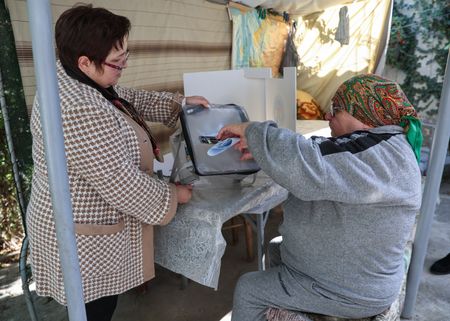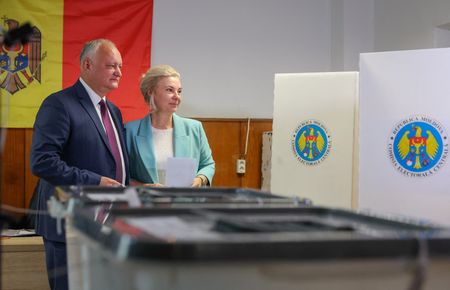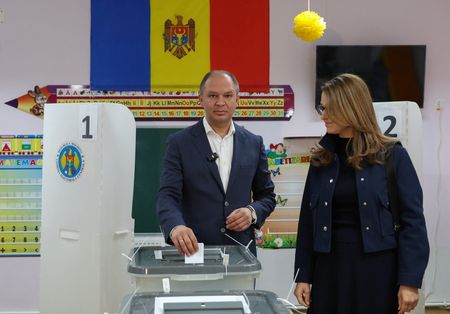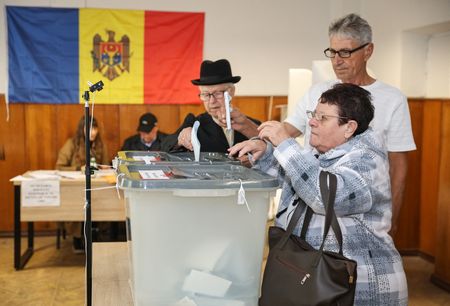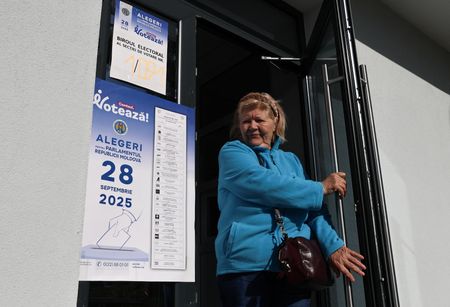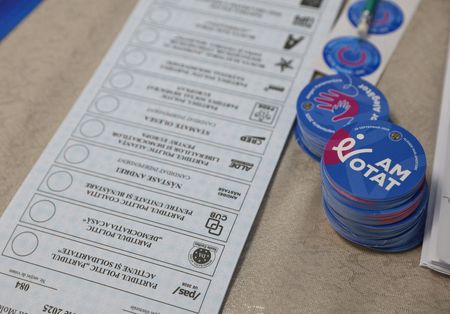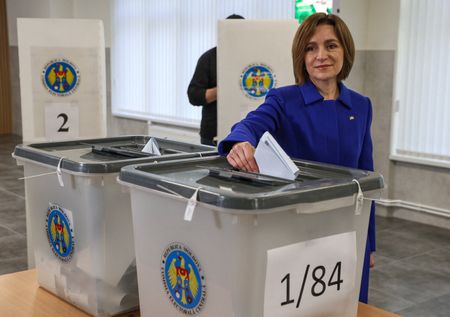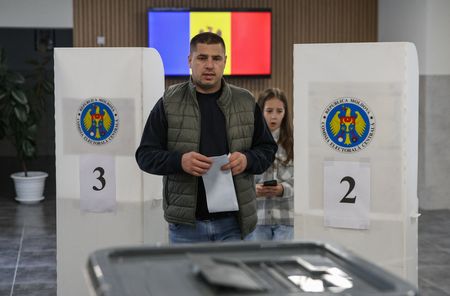By Dan Peleschuk
CHISINAU (Reuters) -Counting began on Sunday in Moldova's parliamentary election that could impact Chisinau's quest to join the European Union, with the pro-EU government and Russia-friendly opposition accusing each other of foul play hours before polling closed.
Mutual recriminations have plagued the buildup to what President Maia Sandu has described as an existential moment for the small east-European nation that has oscillated between European and Russian influence.
The ruling pro-European Party of Action and Solidarity (PAS) is fighting to keep its majority amid attempts by the Russian-leaning Patriotic Bloc to win power and steer the nation away from closer ties with Brussels.
Government officials warned of attempts to disrupt the vote, including cyber attacks on election infrastructure and fake bomb threats throughout the day at polling stations in Moldova and abroad.
Moldova's large diaspora, which tends to favour European integration, could have a say in the outcome of the vote, which authorities began counting after polling stations closed at 9:00 p.m. local time (1800 GMT).
If PAS loses its majority in the 101-seat chamber, Moldova faces further political uncertainty, having been buffeted by the war in neighbouring Ukraine, allegations of Russian interference, and a struggling economy.
So far on Sunday, there was a sense of calm as people voted and went about their business in the leafy backstreets of central Chisinau and towns outside the capital.
CLAIMS AND COUNTER-CLAIMS
Stanislav Secrieru, national security adviser to Sandu, said officials were expecting "further escalation" of cyber attacks on the Central Electoral Commission and other government sites which had been launched from multiple countries.
Fake bomb threats had been called into voting stations in Rome, Brussels and the United States, he wrote on X, a sign of "massive pressure from Russia and its proxies" to disrupt the vote.
Moscow has denied meddling and says the government is spreading anti-Russian hysteria to win votes.
On Sunday, Patriotic Bloc co-leader Igor Dodon, a former president, called for protests in front of parliament on Monday, claiming that Sandu was planning to annul the vote. He did not provide evidence.
Sandu and other senior officials, who want Chisinau to join the EU by 2030, have long warned of an extensive Russian campaign to sway the vote.
Earlier this week, election officials barred two pro-Russian parties from the ballot amid allegations of illegal financing.
Authorities launched hundreds of raids in recent weeks targeting illicit party funding and alleged Russian-backed networks aimed at stirring unrest over the vote.
ECONOMIC PAIN AND PINING FOR THE PAST
Opposition groups like the Patriotic Bloc have tapped into voter unease over economic pain and the slow pace of reforms, grievances worsened by what officials say has been widespread disinformation.
Inflation remains stubbornly high at around 7%, while Moldovans are also shouldering higher costs for imported energy.
If PAS loses its majority, it will be forced to seek coalition partners among opponents like the centre-left Alternative bloc or the populist Our Party - if they pass the threshold to enter parliament.
Viorica Burlacu, a fruit seller in the capital Chisinau, said the war in Ukraine showed that Moldova needed Europe's protection.
"We're afraid of war; no one wants that," said the 46-year-old. "So we're reaching out to Europe for at least some protection."
In Balti, a northern Moldovan city, 82-year-old Maria Scotari offered a different perspective. She recalled being happy as a young student living in the Soviet Union.
"What was so bad about it? That's how life was. I was a student, everything was fine, everything was great."
(Reporting by Dan Peleschuk in Chisnau; Additional reporting by Alexander Tanas and Andriy Pryimachenko in Chisnau and Alexandru Fedas in Balti; Editing by Mike Collett-White, Kevin Liffey, Bernadette Baum, Peter Graff and Nia Williams)



